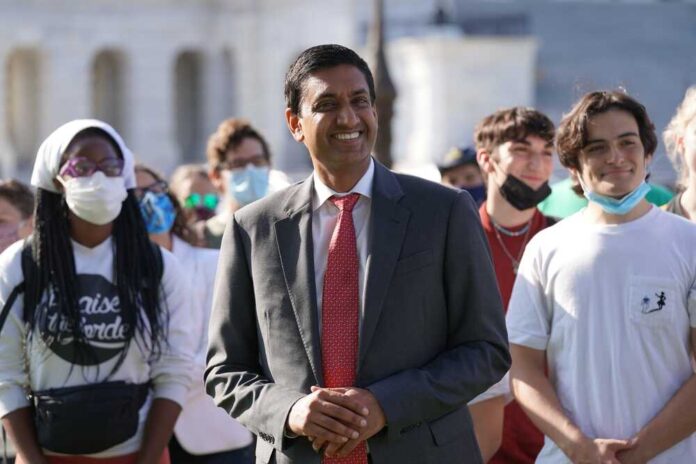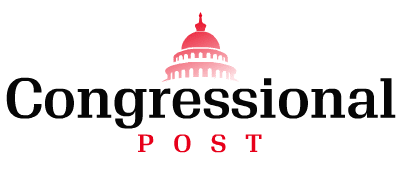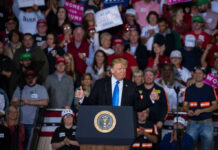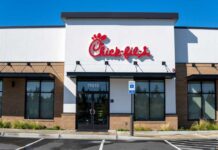
Rep. Ro Khanna (D-CA) is defending former President Donald Trump’s right to free speech in reaction to Meta’s decision to reinstate Trump’s accounts on Facebook and Instagram.
BREAKING: Trump to be Reinstated officially on Facebook and Instagram per Meta.
Will take a few weeks as they put new guidelines and policies in place for Trump.. You can't make this up anymore..
— Matt Couch (@RealMattCouch) January 25, 2023
Trump was previously banned from Facebook, Instagram, and Twitter in response to the January 6 Capitol protests, which these platforms claim were a ‘violent insurrection’ incited by the former president.
During a Wednesday appearance on MSNBC’s “Alex Wagner Tonight,” Khanna reacted to Trump’s reinstatement and Meta’s subsequent announcement that stronger penalties will be applied to the former president if he breaks their arbitrary rules in the future — arguing that the company should actually be looking at Supreme Court First Amendment law to determine how to handle Trump’s speech on the platform.
The Democrat congressman asserted that Trump shouldn’t be punished for engaging in First Amendment-protected speech, noting that the incitement standard he thinks Meta should follow has protected and still protects leftists as well and arguing that “a few people who are multibillionaires” shouldn’t be making decisions on Americans’ speech.
“Let’s just start with your reaction to the assertion on the part of Meta that the threat of violence has sufficiently receded, do you agree with that?” MSNBC host Alex Wagner asked.
Of course, Khanna still pushed the Democrats’ narrative that Trump is somehow responsible for the Capitol protests and threats against Democrat lawmakers.
“I do not,” the Democrat congressman replied. “I certainly think there are a lot of people in the Capitol who don’t agree with that. Unfortunately, [there are] a lot of colleagues who still receive death threats and travel around with security.”
He then immediately pivoted to pushing for free speech.
“But Alex, I’m a classical liberal, and I do believe very strongly in free speech and in getting different viewpoints, and it’s a very difficult situation where you have someone who’s leading the Republican nomination for president to say that they should not have a forum on essentially a modern public square,” Khanna said. “So, I guess where I come out is, if they’re going to lift the ban, but take action to ban him again if he has any posts that [incite] violence, that seems like a reasonable compromise.”
“So, under Brandenburg, our First Amendment law, which I think should inform Facebook, because it’s one of the greatest decisions, along with New York Times [v.] Sullivan, if someone is posting or saying something that incites violence, that actually is not protected speech,” he added. “And if Donald Trump does that again, like he was doing on January 6, there should be a clear consequence for that, and he should be removed. So, I guess the question is, are they going to enforce those guardrails?”
Khanna went on to say that to determine what content is equal to incitement, “they should look to First Amendment jurisprudence. I mean, those calls are made all the time by our judges. And it has to be imminent, the threat, it has to actually be leading to violence, just tough words are not enough. And that was actually New York Times v. Sullivan, often to protect, frankly, the Civil Rights movement, or anti-Vietnam protestors saying you can’t just censor speech if it is provocative. This First Amendment jurisprudence protects, not just conservatives, but liberals.”
“But my concern is that a private corporation like Meta, do they really have the independent jurists to be making those kind of decisions in a way that has the public trust?” he asked. “And I guess that’s my broader criticism of some of the social media companies that you have a few people who are multibillionaires making these decisions about speech in society. I understand why the Supreme Court or our judges are making it. But now you’ve got private companies making it.”
“I think here, there are concerns on censorship, but, Alex the censorship is often against the left, more than the right,” Khanna concluded. “The top ten most popular sites on Facebook, nine out of ten of them are conservative sites.”














